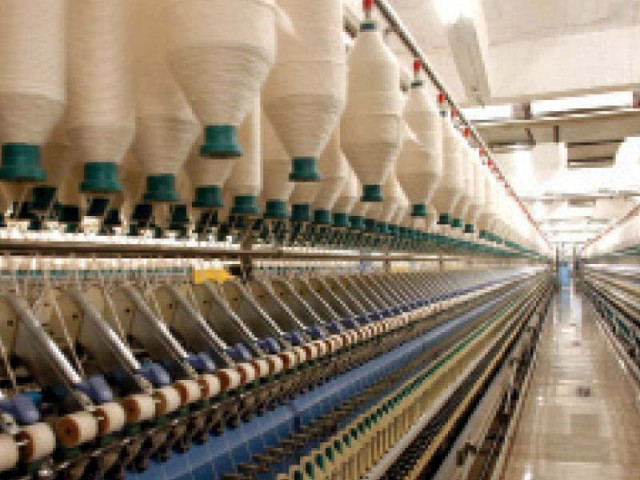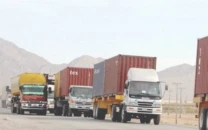Textile exports face 10% downturn
Diminishing trust forces investors to adopt ‘wait and see’ approach

Pakistan’s textile sector is grappling with a significant blow as its exports for fiscal year 2022-23 have witnessed a downturn of almost 10%, signalling a diminishing level of trust among international buyers. The trust deficit is expected to persist throughout the ongoing fiscal year, given the nation’s precarious economic conditions. With general elections on the horizon, both local and foreign investors are adopting a cautious “wait and see” policy before reassessing their strategies for this critical sector.
Speaking to The Express Tribune, Pakistan Hosiery Manufacturers and Exporters Association, Chairman, Babar Khan explained that last year proved to be a tumultuous ride, with inflation and recession impacting economies worldwide, resulting in reduced imports of textile products. “We have lost 40% of our exports to the US this fiscal year, while Bangladesh has managed to increase its exports to the US by 20% during the same period,” he said.
Bangladesh and India, in contrast, have been pursuing aggressive measures to further boost their textile exports to the US and Europe. Additionally, they are actively promoting their products in new markets. Pakistan, on the other hand, possesses a promising $4 billion export potential for African and Central Asian countries, but inadequate infrastructure, including payment systems, banking facilities, and trade routes, hinders the realisation of this potential, lamented Khan.
FY2022-23 saw Pakistan’s textile exports experience a loss of $1.814 billion, reflecting a negative growth rate of 9.84%. According to data from the SBP, textile exports stood at $16.63 billion for FY23, down from $18.44 billion for FY22.
Disconcertingly, not a single sub-sector within textiles posted positive growth in the last fiscal year. Knitwear, bedwear, towels, and readymade garments, which typically demonstrate positive growth, were all subdued. Industry stakeholders have expressed concerns that if Pakistan fails to sustain its GSP Plus status, the situation may become even more dire.
Patron-in-Chief of the Pakistan Readymade Garments Manufacturers and Exporters Association, Ijaz Khokhar warned that “The state of textile exports might become more alarming if we lose GSP Plus status.” He cited political and economic unrest in the country over the past year and the adverse impact of import bans as contributing factors to the challenges faced by the sector. Foreign buyers are now favouring Bangladesh due to the availability of cheaper products, he said.
Furthermore, the scarcity of a crucial raw material, cotton, exacerbates the situation. Khokhar expressed regret over the lack of price stability for this vital raw material and criticised the lack of 100% implementation of textile policy. Without a policy revision and effective implementation, the sector, which earns a substantial foreign exchange for the country, suffers.
Presently, all expansion projects for the textile sector remain at a standstill, resulting in a loss of market credibility that was painstakingly established over time. “We are currently losing on both ends – already established markets and the commitment to explore new markets,” Khokhar added. In contrast, neighbouring countries are actively working to explore and capitalise on new markets, while Pakistan’s relevant departments have been sluggish in this regard.
Published in The Express Tribune, July 26th, 2023.
Like Business on Facebook, follow @TribuneBiz on Twitter to stay informed and join in the conversation.



















COMMENTS
Comments are moderated and generally will be posted if they are on-topic and not abusive.
For more information, please see our Comments FAQ